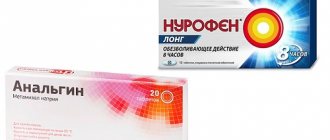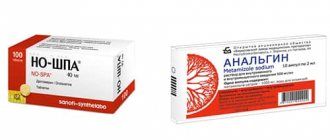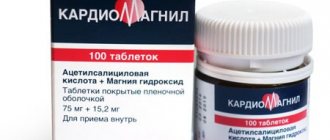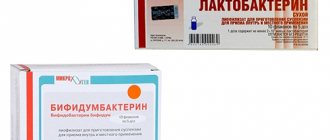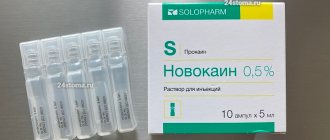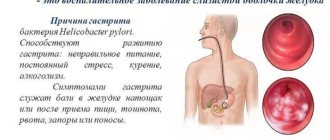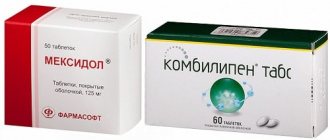How to lower an adult's fever: 8 best drugs
September 14, 2022
68298
4.3
4
Content
- How to choose fever pills
- Why does the temperature rise
- What to do at elevated temperatures
- How to reduce fever without medication
- The best antipyretics
- Paracetamol
- Nimesil
- Nurofen Long
- Theraflu ExtraTab
- Ibuklin
- Maxicold
- Rinza
- Aspirin
An increase in temperature is a signal from the body that there is an inflammatory process somewhere. An increase in temperature is a protective response of the immune system, the purpose of which is to eliminate the problem. But there are situations when the temperature urgently needs to be brought down. We will tell you which antipyretic pills are best to choose.
How to choose fever pills
Antipyretic drugs come in two categories:
- antipyretics
(such drugs have a good antipyretic effect, they relieve pain a little, but do not in any way affect the source of inflammation). These are mainly paracetamol-based drugs; - NSAIDs
(these drugs relieve inflammation, reduce pain and reduce fever). In this category, the most famous drug is aspirin, but it has a lot of side effects. Today, instead of aspirin, there are many other, safer drugs for fever. One of them is ibuprofen.
Antipyretics
Historically, there are several groups of drugs that can be used for antipyretic purposes. These include, first of all, non-opioid analgesics (analgesics-antipyretics), which to this day remain one of the most used drugs in pediatric practice. This group of drugs combines several properties: antipyretic, anti-inflammatory, analgesic, and antithrombotic, which potentially make it possible to control the main symptoms of many diseases. No other group of drugs has such a range of positive effects. Analgesics-antipyretics have been used in medicine as antipyretic drugs for more than 200 years. Currently, several pharmacological groups of non-opioid analgesics have been created, which are divided into non-steroidal anti-inflammatory drugs and “simple analgesics” (acetaminophen). Acetaminophen (paracetamol) is not included in the group of non-steroidal anti-inflammatory drugs, since it has virtually no anti-inflammatory effect.
Why does the temperature rise
The temperature can rise for various reasons. All of them can be divided into the following groups:
- Infectious diseases caused by viruses (ARVI, influenza, intestinal infections, coronavirus, etc.).
- Infections caused by bacteria (tonsillitis, bronchitis, pharyngitis, pneumonia, skin inflammation and intestinal infections).
- Complications after operations, post-traumatic complications due to infection and tissue inflammation.
- Autoimmune diseases.
- Oncological processes (including blood diseases).
Also, body temperature may increase after overheating, against the background of endocrine diseases, due to problems with metabolism or taking certain medications. Non-pathological causes of fever also include: stress, premenstrual syndrome, menstruation, pregnancy, teething in babies.
By the way, a slightly elevated temperature can sometimes be a variant of the norm - as an individual feature of the body.
Antipyretic drugs for children. Fever, increased body temperature in a child
Increased body temperature is the most common and one of the most important symptoms of various diseases and conditions of childhood. Feverish conditions become the immediate reason for the use of various medications. Therefore, one of the important problems in pediatrics is the uncontrolled use of medications with a low rise in temperature (less than 38 degrees).
This is due to a lack of understanding of the importance of temperature response as an element of the body’s fight against disease. Consultations with a pediatrician at the Markushka children's clinic.
What to do at elevated temperatures
If you have a slight fever, do not rush to immediately swallow an antipyretic. If the numbers are 38-38.5, just try to have a good rest, drink a lot of warm liquids and get some sleep. Give the body the opportunity to cope with the infection on its own.
If you feel normal at an elevated temperature (up to 38.5 degrees), you are at home, you can try to lower the temperature without pills: wipe your body with a damp towel moistened with water at room temperature.
But if you do not tolerate an increase in temperature, it has risen above 38.5 degrees, be sure to take an antipyretic. Especially if you have a headache, general weakness or convulsions (in this case you need to call an ambulance).
Take any medications (including antipyretics) with caution if you are prone to allergies. Often tablets or syrups for fever contain flavorings and dyes.
Often the dose of fever medication is calculated based on body weight. If a child’s temperature has risen, it can only be brought down with certain medications, so be sure to check the instructions for contraindications.
Tablets for fever, as we wrote above, are divided into two groups: NSAIDs and antipyretics. Drugs based on NSAIDs in combination with antispasmodics are good at reducing fever, which does not decrease for a long time (usually emergency doctors give such injections). But before using drugs with NSAIDs, it is necessary to assess the general health of the patient - NSAIDs are contraindicated for gastrointestinal diseases.
At elevated temperatures, it is imperative to look for the cause and fight it. This is usually a viral or bacterial infection. If it is bacterial, antibiotics are prescribed, but if it is a virus, then there is no special treatment, only symptomatic. Antiviral drugs are ineffective here. It is important to immediately consult a doctor if antipyretic drugs do not reduce the temperature well or the condition only worsens.
Fever without symptoms: what to do
Sometimes there may be no symptoms of fever: no cough, headaches, runny nose, fatigue or chills. Fever without symptoms can occur in two cases: fever without a source of infection and fever of unknown origin.
Fever without a source of infection affects children under 3 years of age who do not have catarrhal symptoms (runny nose, cough, sputum) and other signs that indicate the cause of the pathology and its location. Fever without a focus of infection occurs with viral and bacterial diseases, most often with pneumococcal infection, Haemophilus influenzae, typhoid and salmonella. In this case, you need to show the child to a pediatrician or call an ambulance, as it is necessary to quickly establish the cause and begin treatment.
Fever of unknown origin is a syndrome in which fever (38.5 0C and above) does not go away on its own and lasts longer than 3 weeks. However, the cause could not be determined after using routine diagnostic methods. Probable causes: infections (most often tuberculosis), autoimmune diseases, malignant neoplasms, medications, alcoholic cirrhosis, Crohn's disease. If you have a fever of unknown origin, you need to see a doctor and be hospitalized so that doctors can monitor the patient constantly.
How to reduce fever without medication
There are non-drug methods of reducing fever that can be used either alone or while taking antipyretics.
- If you are feeling chilly, you should not wrap yourself up too much, so as not to disrupt heat transfer - this will only aggravate the condition. You need to cover yourself until you are comfortable, but not too hot.
- Don't forget to have enough liquid. The body tries to cool down - the body sweats and loses fluid. If there is little water in the body, the condition will worsen. The liquid also helps remove waste products of pathogenic microorganisms from the body.
- If you don't have an appetite, don't force yourself (or your child) to eat. During illness, all the body's strength is spent fighting infection.
- To reduce your temperature without medication, wipe your body with a towel moistened with water at room temperature.
- At elevated temperatures, ice can be applied to large vessels. First you need to crush the ice and put it in a bag. An ice pack should be applied through a towel - to the groin folds, armpits, forehead, popliteal fossa.
- Raspberry, cherry, currant, and strawberry jam are considered folk remedies for fever (you can add tea or simply stir with warm water).
If the above methods of reducing fever do not work, be sure to take an antipyretic.
Paracetamol
You can buy Paracetamol in tablets, capsules, syrup, suspension and in the form of rectal suppositories. The active substance is paracetamol. The antipyretic is available without a prescription. This is the safest remedy, effective and prescribed for ARVI. Compared to other drugs, Paracetamol is weaker because it does not have an anti-inflammatory effect - for bacterial infections it is better to choose other tablets for fever. Paracetamol moderately reduces headaches and reduces general malaise. The temperature begins to drop 30-40 minutes after taking the drug, the effect lasts for 4-6 hours. Paracetamol is safe for both children and the elderly, pregnant and lactating women. The only exception is people with severe liver disease and chronic alcoholism. Paracetamol should not be taken with alcohol, for prophylaxis or as a course - only at high temperatures.
Paracetamol MS
Medisorb, Russia
Paracetamol is used for: relieving moderate or mild pain (headache, toothache, migraine, sore throat, neuralgia, myalgia);
reducing elevated body temperature during colds and other infectious and inflammatory diseases. Paracetamol is intended for symptomatic therapy, reducing pain and inflammation at the time of use, does not affect the progression of the disease. from 2
5.0 1 review
596
- Like
- Write a review
Nimesil
The active ingredient of the antipyretic drug is nimesulide. These are NSAIDs with pronounced anti-inflammatory, antipyretic and analgesic effects. You can buy Nimesil at the pharmacy in individual sachets. Among the contraindications to taking Nimesil are diseases of the gastrointestinal tract (the full list is listed in the instructions, so be sure to read it before taking the drug). "Nimesil" should be used only after consultation with a doctor.
Nimesil
Berlin-Chemie/Menarini, Germany
Treatment of acute pain (back pain, lower back pain; pain syndrome in the musculoskeletal system, including injuries, sprains and dislocations of joints, tendonitis, bursitis; toothache);
— symptomatic treatment of osteoarthritis with pain syndrome; - algodismenorrhea. The drug is intended for symptomatic therapy, reducing pain and inflammation at the time of use. from 24
5.0 2 reviews
2384
- Like
- Write a review
How does aspirin work?
It blocks the action of the enzyme cyclooxygenase in the body, thus reducing the synthesis of special substances - prostaglandins.
Prostaglandins are involved in the processes of inflammation, in the regulation of vascular tone, muscle contractions, protect the wall of the stomach and intestines from chemical damage and promote the formation of blood clots when the walls of blood vessels are damaged.
Platelets are pieces of cells that constantly float through the bloodstream. In some situations, they can “activate” and stick together, forming a blood clot. As a rule, this occurs when a vessel is damaged - an injury or a cut, and helps the body avoid large blood losses.
Cardiovascular diseases are currently the leading cause of death in the world and in Russia, and first of all we are talking about coronary heart disease and myocardial infarction, as well as ischemic stroke.
Cardiovascular diseases are currently the leading cause of death in the world.
Most heart attacks and strokes occur when blood flow to an area of the heart or brain is blocked by a blood clot.
And it all begins gradually, with the development of atherosclerotic vascular disease. This is the name of the process in which a gradual accumulation of cholesterol, cellular breakdown products and calcium occurs in the inner layer of the vascular wall - an atherosclerotic plaque is formed. Atherosclerosis usually affects large and medium-sized arteries, and the plaques themselves often grow to such a size that they begin to significantly impede blood flow.
But the real problems begin when the plaque becomes brittle and ruptures. The body reacts to a ruptured plaque in the same way as to a ruptured vessel, saving itself from major blood loss - it tries to “patch” the damage by covering the area with a blood clot, and platelets are the first to arrive at the site of damage. A ruptured plaque “misleads the platelets” and becomes the site of the formation of a blood clot, partially or completely blocking the blood flow.
If a blood clot blocks a vessel supplying blood to the heart, myocardial infarction develops; if it supplies blood to the brain, an ischemic stroke occurs.
In recent decades aspirin has firmly entered our lives as a drug that helps maintain heart health, and has practically become a “vitamin for the myocardium.” Anyone can go to the pharmacy and buy aspirin without a prescription.
Daily use of low-dose aspirin (usually 50-100 mg per day) has been considered an effective way to reduce the risk of myocardial infarction, ischemic (that is, associated with decreased cerebral blood flow) stroke, and other problems associated with impaired vascular blood flow.
However, in 2017-2019, several large medical studies were conducted that changed the point of view of doctors on this drug.
The data obtained concerned patients who did not have coronary heart and vascular disease, heart attacks or strokes in the past, but who took the drug to prevent them in the future.
The first found no benefit from aspirin in patients at low risk of developing cardiovascular disease.
The second unexpectedly showed an increase in overall mortality in older people without cardiac disease who took aspirin as prophylaxis.
The third found a high risk of bleeding that outweighed the benefit of aspirin in most patients at moderate risk of developing cardiovascular disease, and identified a group of people who benefit from prophylactic aspirin.
Finally, to find out how many people take preventative aspirin, a survey was conducted in the United States of more than 14,000 men and women over 40 years of age. It turned out that about a quarter of healthy people take aspirin for preventive purposes, and a quarter of these people decided to take aspirin treatment on their own, without consulting a doctor. Moreover, half of respondents aged 70 years and older, and without cardiovascular disease, took aspirin daily.
A quarter of healthy people take aspirin for preventive purposes.
Unfortunately, taking any medicine, regardless of its study and breadth of use, is simultaneously associated with both health benefits and the risk of complications.
Aspirin, while reducing the formation of blood clots in the body, has serious side effects, which are the “other side of the coin” - gastrointestinal bleeding, as well as severe intracerebral, intraocular and intraarticular hemorrhages.
There must be very good reasons for recommendations for its preventive use!
So, when should a cardiologist recommend that a patient take low-dose aspirin every day?
- Firstly, this is necessary for those patients who have already experienced one or more strokes or myocardial infarction. The risk of developing a recurrence in such people is almost 8 times higher compared to those who have never been sick. This kind of prevention is called secondary (we try to prevent the second and subsequent cardiovascular accidents)
- Prophylactic treatment is also necessary for those who have not had a heart attack, but who previously had a stent installed in the coronary artery, or for those who have undergone coronary artery bypass surgery. The doctor will also prescribe aspirin to someone who has been diagnosed with angina pectoris - pain in the chest during physical (less often emotional) stress associated with atherosclerotic narrowing in the coronary vessels
- Aspirin is infrequently prescribed to patients with atrial fibrillation, heart valve disease or prosthetic valves - usually when more effective drugs cannot be prescribed
- Aspirin is used to treat atherosclerotic changes in the arteries of the legs - with these problems, patients experience severe pain in the calf muscles when walking, this is called “intermittent claudication”
- And finally, the most difficult situation is prescribing aspirin to a patient who does not yet have any cardiovascular diseases in order to prevent their occurrence. The so-called “primary prevention” of the disease
Please remember that for people over 70 years of age who do not have cardiovascular disease, taking preventive aspirin is generally not recommended, it will not provide any benefit, and the risk of severe bleeding is very high.
For people over 70 years of age who do not have cardiovascular disease, preventive aspirin is generally not recommended.
Aspirin prophylaxis currently recommended for people 50–69 years of age with a low risk of bleeding and a greater than 10% risk of heart attack or stroke over the next 10 years of life. Risk factors include male gender, diabetes, frequent high blood pressure, smoking and high cholesterol levels in blood tests.
Nurofen Long
"Nurofen Long" for fever is sold in tablets, capsules, syrup. You can also buy a combination drug "Nurofen" with paracetamol. Nurofen does not require a prescription, and its active substance is ibuprofen (NSAID). Nurofen Long perfectly reduces the temperature literally 20 minutes after taking the tablet, and the effect lasts for 8 hours. The drug also reduces muscle pain, relieves headaches and inflammation, relieves nasal congestion, and relieves pain. Nurofen Long is recommended for bacterial infections and exacerbation of chronic diseases. The drug helps with elevated temperature due to ARVI. Contraindications include intolerance to ibuprofen and fructose, gastrointestinal diseases (including gastritis and ulcers), liver and kidney diseases. You should not drink alcohol while taking Nurofen. Nurofen is prescribed during pregnancy only if there is an urgent need.
Nurofen Long
Reckitt Benckiser, Netherlands
Backache;
joint pain; muscle and rheumatic pain; neuralgia; headache; migraine; toothache; painful menstruation; a sore throat; feverish condition; cold and flu symptoms. The drug is especially indicated for the symptomatic treatment of pain requiring a more pronounced analgesic effect than ibuprofen or paracetamol alone. from 137
748
- Like
- Write a review
Theraflu ExtraTab
These fever tablets contain paracetamol, which reduces fever well. In addition, Theraflu ExtraTab contains phenylephrine (a vasoconstrictor) and chlorphenamine (an antihistamine). Therefore, the drug has a complex effect - it relieves swelling during a runny nose and reduces fever. Contraindications to taking Theraflu ExtraTab include stomach ulcers.
Theraflu extratab
Novartis Pharma Services AG (Novartis Pharma), Switzerland
Symptomatic treatment of infectious and inflammatory diseases (ARVI, including influenza), accompanied by high fever, chills, headache, runny nose, nasal congestion, sneezing, muscle pain.
from 148
444
- Like
- Write a review
Properties of aspirin
The main reason for using aspirin after a hangover is to try to alleviate a person’s condition, which is aggravated after drinking too much alcohol. The anti-hangover pill aspirin can improve the condition, restore physical activity and relieve headaches. The effect of aspirin is to instantly affect the composition of the blood, which has a viscous form after drinking alcohol. It thins the blood, prevents the formation of clots and blood clots, stimulates blood flow and alleviates the general condition of a person. Aspirin promotes and restores processes in the body, relieves dehydration and weakness.
Ibuklin
This is a complex antipyretic drug - here paracetamol and ibuprofen (antipyretic and NSAID). You can buy Ibuklin without a prescription; the product reduces fever well, relieves cold symptoms, reduces inflammation and body aches, and improves overall well-being. “Ibuklin” begins to act 20 minutes after administration, and the effect lasts 6-8 hours. Contraindications: liver and kidney diseases, gastrointestinal problems (ulcers, gastritis). Ibuklin should not be taken with alcohol.
Ibuklin
Dr. Reddy's Laboratories, India
- symptomatic treatment of infectious and inflammatory diseases (colds, flu), accompanied by fever, chills, headache, muscle and joint pain, sore throat;
- myalgia; - neuralgia; - back pain; — joint pain, pain syndrome in inflammatory and degenerative diseases of the musculoskeletal system; - pain from bruises, sprains, dislocations, fractures; — post-traumatic and postoperative pain syndrome; - toothache; - algodismenorrhea. The drug is intended for symptomatic therapy, reducing pain and inflammation at the time of use, and does not affect the progression of the disease. from 78
954
- Like
- Write a review
Causes of fever and increased body temperature in children
Since fever is a nonspecific protective-adaptive reaction of the body, the reasons that cause it are very diverse. Fever most often occurs in infectious diseases, among which acute respiratory diseases of the upper and lower respiratory tract dominate.
Fever of infectious origin develops in response to exposure to viruses, bacteria and their decay products. An increase in body temperature of a non-infectious nature can have different origins: central (hemorrhage, tumor, injury, cerebral edema), psychogenic (neurosis - consultations with a pediatric neurologist at the Markushka clinic, mental disorders, emotional stress), reflex (pain syndrome due to urolithiasis) , endocrine (hyperthyroidism - pediatric endocrinologist, Markushka clinic, pheochromocytoma), resorptive (bruise, necrosis, aseptic inflammation, hemolysis); it can also occur in response to the administration of medications as a result of an allergic reaction (for example, to ephedrine, xanthine derivatives, antibiotics and many others - consult a pediatric allergist at the Markushka polyclinic).
With the same level of hyperthermia, fever in children can occur differently . So, if heat transfer corresponds to heat production, this indicates an adequate course of fever and is manifested by the child’s relatively normal state of health, pink or moderately hyperemic skin color, moist and warm to the touch (“pink fever”). This type of fever often does not require the use of antipyretics. In the case when, with increased heat production, heat transfer is inadequate due to impaired peripheral circulation, the course of the fever is prognostically unfavorable. In this case, severe chills, pale skin, acrocyanosis, cold feet and palms (“pale fever”) are noted. These children usually require antipyretic drugs in combination with vasodilators and antihistamines (or antipsychotics). Calling a pediatrician to your home - Markushka clinic.
Maxicold
The drug "Maxicold" contains paracetamol. This antipyretic drug perfectly relieves all symptoms of ARVI. In addition to Maxicold, you can buy Maxicold Rhino at the pharmacy, which will effectively relieve a runny nose and swelling of the nasal mucosa thanks to phenylephrine and pheniramine (vasoconstrictor and antiallergic effects). Maxicold contains vitamin C, a natural antioxidant that strengthens the immune system and helps the body fight colds.
Maxicold
JSC Pharmstandard-UfaVITA, Russia
Symptomatic treatment of infectious and inflammatory diseases (including influenza and other acute respiratory viral infections (ARVI), accompanied by fever, chills, nasal congestion, headache, pain in the bones and muscles, in the throat and sinuses. from
39
5.0 1 review
495
- Like
- Write a review
Maxicold Rhino
OJSC Pharmstandard-Leksredstva, Russia
- symptomatic treatment of colds, acute respiratory viral infections, flu, accompanied by high fever, chills, headache, runny nose, pain in the sinuses and throat, nasal congestion, sneezing and pain in muscles and joints.
from 53
470
- Like
- Write a review
Rinza
Rinza tablets are a complex drug. The product contains caffeine, which enhances the antipyretic effect and improves metabolic processes. Paracetamol helps reduce fever and relieve muscle pain. Phenylephrine relieves swelling of the nasal mucosa, chlorphenamine is an antihistamine against inflammation. "Rinza" relieves cold symptoms for 12 hours. This drug is contraindicated for pregnant women, hypertensive patients, patients with atherosclerosis, those treated with antidepressants, people with kidney and liver diseases; alcohol should not be taken while being treated with Rinza.
Rinza
Unique Pharmaceutical Laboratories, India
- symptomatic treatment of “colds”, acute respiratory viral infections (including influenza), accompanied by fever, pain, and rhinorrhea.
from 64
733
- Like
- Write a review
Aspirin
Aspirin can be bought both in regular tablets and in effervescent form. This is an NSAID whose active substance is acetylsalicylic acid. Aspirin has a strong antipyretic effect, it is an excellent pain reliever, while the anti-inflammatory effect of the drug is very weak. After taking Aspirin, relief occurs within 15 minutes (faster if these are effervescent tablets). But you need to remember that Aspirin is not the safest drug for fever. Allergies often occur to it; asthmatics, allergy sufferers and those who have problems with the gastrointestinal tract and liver should not drink it. It is prohibited for children under 15 years of age and pregnant women to take Aspirin with alcohol.
Aspirin
Doctors explained whether it is possible to take aspirin and analgin for COVID-19
Taking aspirin or analgin as an antipyretic can be dangerous for patients with coronavirus, said Irina Vereyutina, head of the psychoneurological department of polyclinic No. 4 of the Presidential Administration of the Russian Federation.
“To reduce body temperature in patients with coronavirus infection, it is necessary to use paracetamol,” she noted, emphasizing that the use of aspirin and analgin in this case is “unacceptable.”
However, some doctors were skeptical of this claim. Thus, immunologist Maria Polner told Gazeta.Ru that she doubts the reliability of Vereyutina’s categorical judgments. However, she explained that, most likely, the neurologist relied on WHO data that the use of non-steroidal (non-hormonal - Gazeta.Ru) anti-inflammatory drugs (NSAIDs), which include aspirin with analgin, for COVID-19 is not recommended.
“Previously, there was indeed information about the undesirable use of NSAIDs for coronavirus infection. However, on March 19, 2020, WHO issued a refutation. According to them, they are consulting with doctors treating patients with COVID-19, and currently do not receive information about any negative effects of such drugs."
- noted the doctor.
However, according to Polner, aspirin and analgin still have side effects that make their use not recommended for certain groups of the population - patients with hypersensitivity, gastric ulcers, aspirin-induced asthma and hematopoietic disorders.
In addition, aspirin can harm the body if taken together with anticoagulants (medicines that prevent the formation of blood clots - Gazeta.Ru), which are sometimes used for coronavirus, the immunologist believes. “In this case, there is a risk of massive bleeding,” she explained to Gazeta.Ru.
At the same time, aspirin, due to the content of acetylsalicylic acid (a substance that has an antipyretic effect - "Gazeta.Ru"), against the background of infectious diseases, in rare cases can cause Reye's syndrome - a dangerous condition in which acute liver failure and hyperammonemia occurs (increased concentration of ammonia in the body, which can cause coma and even death - Gazeta.Ru).
Also, earlier, specialists from the Mayo Clinic in the USA found that non-steroidal anti-inflammatory drugs can lead to a heart attack or stroke, and, as British doctors stated, coronavirus also often puts additional stress and complications on the cardiovascular system.
American scientists analyzed data from 56 thousand adults with high blood pressure who had been taking NSAIDs for a long time. The study found that one in 330 people who used these drugs had a heart attack or stroke within four weeks. They also noted that the drug with the highest risk of adverse reactions was celecoxib, with a heart attack occurring in 1 in 105 patients taking the drug.
Cardiologist Yuri Kuzmenkov previously reported that long-term use of NSAIDs can also lead to the development of gastropathy - damage to the mucous membrane of the stomach and duodenum, leading to the development of erosions and ulcers. In addition, according to him, various dyspeptic disorders (digestive disorders - Gazeta.Ru) often occur with gastropathy.
However, he emphasized that such changes in the body can only occur with long-term treatment with such drugs, while with coronavirus, therapy takes several weeks at worst.
“Most often, damage occurs within three months after the start of treatment, is localized mainly in the upper part of the stomach and has a tendency to recur,”
— he told the portal “For Each Other,” adding that on average, from 14% to 50% of patients taking NSAIDs encounter such pathologies.
However, on April 19, WHO once again published data according to which the use of non-steroidal anti-inflammatory drugs for coronavirus infection is permitted. “Currently, there is no evidence of serious side effects or decreased quality of life in patients with COVID-19 as a result of the use of NSAIDs,” the organization’s specialists concluded.
The Russian Ministry of Health also agreed with them. “NSAIDs can and should be prescribed to patients with coronavirus along with paracetamol, and here we stand in solidarity with the World Health Organization,” said Elena Malinnikova, chief infectious disease specialist at the Russian Ministry of Health.
“The most important thing for patients is to strictly follow the doctor’s recommendations. Only a doctor can prescribe the drug needed for a particular patient and offer effective treatment tactics,” she emphasized.
